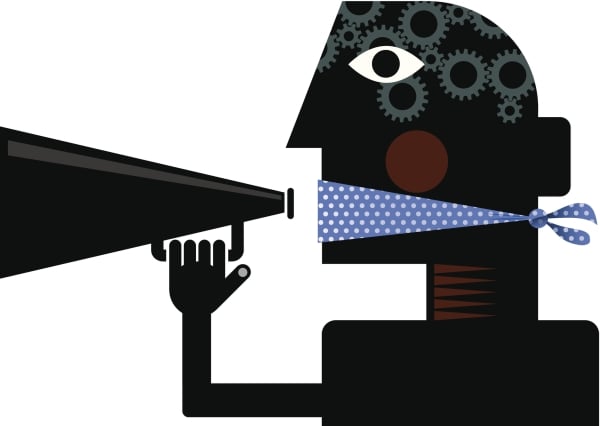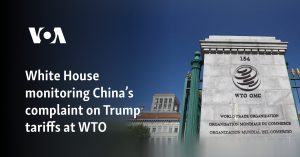Katherine Franke, formerly a law professor at Columbia University, is just the latest of many academics who have found themselves in hot water because of something they said outside the classroom. Others have been fired or resigned under pressure for what they posted online or said in other off-campus venues.
In each of those cases, the “offending party” invoked academic freedom or freedom of speech as a defense to pressures brought on them, or procedures initiated against them, by university administrators. The traditional discourse of academic freedom or free speech on campus has focused on threats from inside the academy of the kind that led Franke and others to leave their positions.
Today, threats to academic freedom and free speech are being mounted from the outside by governments or advocacy groups intent on policing colleges and universities and exposing what they see as a suffocating orthodoxy. As Darrell M. West wrote in 2022, “In recent years, we have seen a number of cases where political leaders upset about criticism have challenged professors and sought to intimidate them into silence.”
We have seen this act before, and the record of universities is not pretty.
During the 1940s and 1950s, an anticommunist crusade swept the nation, and universities were prime targets. In that period, “faculty and staff at institutions of higher learning across the country experienced increased scrutiny from college administrators and trustees, as well as Congress and the FBI, for their speech, their academic work, and their political activities.”
And many universities put up no resistance.
Today, some believe, as Nina Jankowicz puts it, that we are entering “an era of real censorship the likes of which the United States has never seen. How will universities respond?”
If academic freedom and freedom of expression are to be meaningful, colleges and universities must not only resist the temptation to punish or purge people whose speech they and others may find offensive; they must provide new protections against external threats, especially when it comes to extramural speech by members of their faculties.
They must become active protectors and allies of faculty who are targeted.
As has long been recognized, academic freedom and free speech are not identical. In 2007, Rachel Levinson, then the AAUP senior counsel, wrote, “It can … be difficult to explain the distinction between ‘academic freedom’ and ‘free speech rights under the First Amendment’—two related but analytically distinct legal concepts.”
Levinson explained, “Academic freedom … addresses rights within the educational contexts of teaching, learning, and research both in and outside the classroom.” Free speech requires that there be no regulation of expression on “all sorts of topics and in all sorts of settings.”
Ten years after Levinson, Stanley Fish made a splash when he argued, “Freedom of speech is not an academic value.” As Fish explained, “Accuracy of speech is an academic value … [because of] the goal of academic inquiry: getting a matter of fact right.” Free speech, in contrast, means “something like a Hyde Park corner or a town-hall meeting where people take turns offering their opinions on pressing social matters.”
But as Keith Whittington observes, the boundaries that Levinson and Fish think can be drawn between academic freedom and free speech are not always recognized, even by organizations like the AAUP. “In its foundational 1915 Declaration of Principles on Academic Freedom and Academic Tenure,” Whittington writes, “the AAUP asserted that academic freedom consists of three elements: freedom of research, freedom of teaching, and ‘freedom of extramural utterance and action.’”
In 1940, Whittington explains, “the organization reemphasized its position that ‘when they speak or write as citizens,’ professors ‘should be free from institutional censorship or discipline.’”
Like the AAUP, Whittington opposes “institutional censorship” for extramural speech. That is crucially important.
But in the era in which academics now live and work, is it enough?
We know that academics report a decrease in their sense of academic freedom. A fall 2024 survey by Inside Higher Ed found that 49 percent of professors experienced a decline over the prior year in their sense of academic freedom as it pertains to extramural speech.
To foster academic freedom and free speech on campus or in the world beyond the campus, colleges and universities need to move from merely tolerating the expression of unpopular ideas to a more affirmative stance in which they take responsibility for fostering it. It is not enough to tell faculty that the university will respect academic freedom and free expression if they are afraid to exercise those very rights.
Faculty may be fearful that saying the “wrong” thing will result in being ostracized or shunned. John Stuart Mill, one of the great advocates for free expression, warned about what he called “the tyranny of the prevailing opinion and feeling.” That tyranny could chill the expression of unpopular ideas.
In 1952, during the McCarthy era, Supreme Court justice Felix Frankfurter also worried about efforts to intimidate academics that had “an unmistakable tendency to chill that free play of the spirit which all teachers ought especially to cultivate and practice.”
Beyond the campus, faculty may rightly fear that if they say things that offend powerful people or government officials, they will be quickly caught up in an online frenzy or will be targeted. If they think their academic institutions will not have their back, they may choose the safety of silence over the risk of saying what they think.
Whittington gets it right when he argues that “Colleges and universities should encourage faculty to bring their expertise to bear on matters of public concern and express their informed judgments to public audiences when doing so might be relevant to ongoing public debates.” The public interest is served when we “design institutions and practices that facilitate the diffusion of that knowledge.”
Those institutions and practices need to be adapted to the political environment in which we live. That is why it is so important that colleges and universities examine their policies and practices and develop new ways of supporting their faculty if extramural speech gets them in trouble. This may mean providing financial resources as well as making public statements in defense of those faculty members.
Colleges and universities should also consider making their legal counsel available to offer advice and representation and using whatever political influence they wield on behalf of a faculty member who is under attack.
Without those things, academics may be “free from” the kind of university action that led Franke to leave Columbia but still not be “free to” use their academic freedom and right of free expression for the benefit of their students, their professions and the society at large.
Austin Sarat is the William Nelson Cromwell Professor of Jurisprudence and Political Science at Amherst College.








